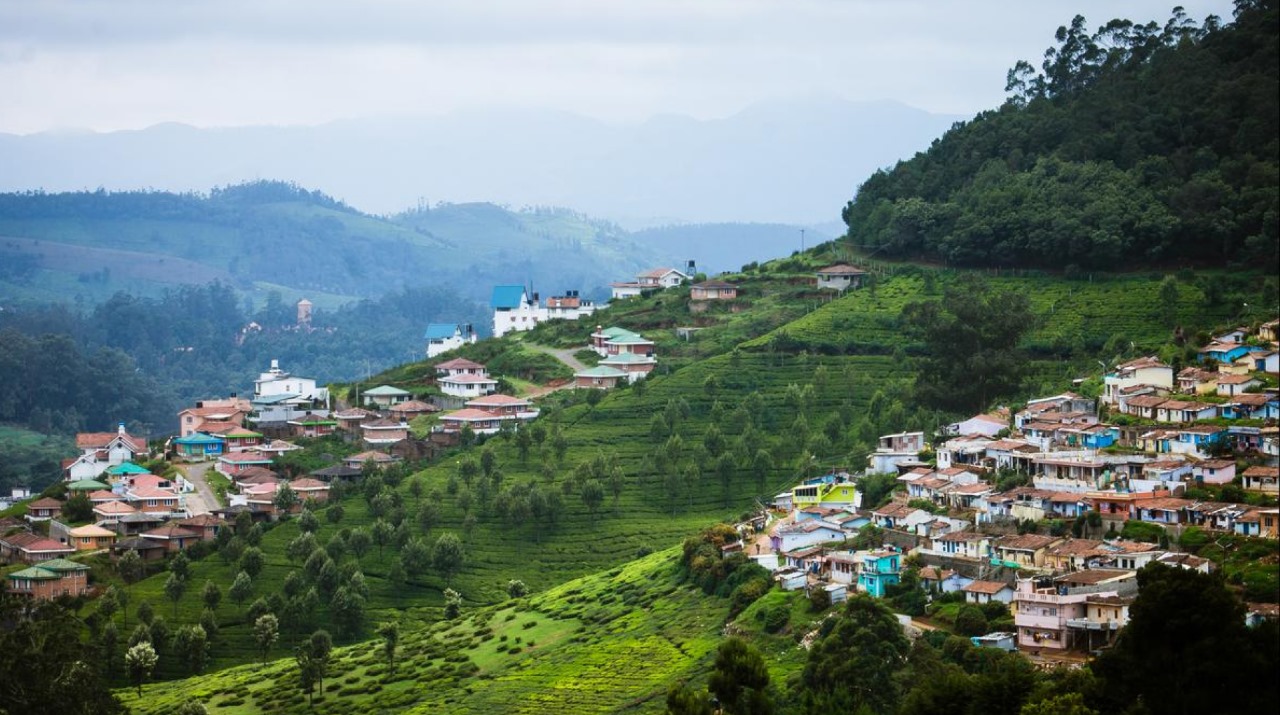We left behind the hot plains of Coimbatore and drove up winding roads to Coonoor, a quiet hill town with a British colonial past. In just three hours, we reached 6,000 feet above sea level, where the air was cool and fresh. The green tea plantations covered the hills like soft carpets, shining under the sun.
Women in colorful saris plucked tea leaves by hand. The British had once brought tea to these hills after the opium wars in China. Today, their old churches, houses, and tea estates still stand. Coonoor is perfect for peaceful walks, scenic drives, and sipping tea on quiet porches.
At the Wellington Gymkhana Club, where we stayed, tea gardens stretched everywhere—even near shops and homes. Naturalist Titus Pinto showed us the shola forests and said the blue hills got their name from the neelakurinji flowers that bloom every 12 years.
One evening, we saw a giant gaur (wild bison) up close. Titus warned us they can be dangerous, but they are welcome here—they don’t eat tea leaves, only the weeds, and their manure helps the soil. Other animals like deer, pigs, and even leopards quietly visit the plantations too.
Locals often share stories of elephants or leopards walking through the area at night. On a night safari, we saw gaurs near garbage dumps, and even spotted a porcupine.
In the morning, we walked through misty tea fields, saw bright flowers and giant Malabar squirrels. Villagers welcomed us during a Kartik festival with warm smiles and delicious smells of idli and sambar.
#Coonoor #TeaPlantations #Nilgiris #NatureWalks #WildlifeIndia #TravelIndia #HillStationVibes #PeacefulPlaces
